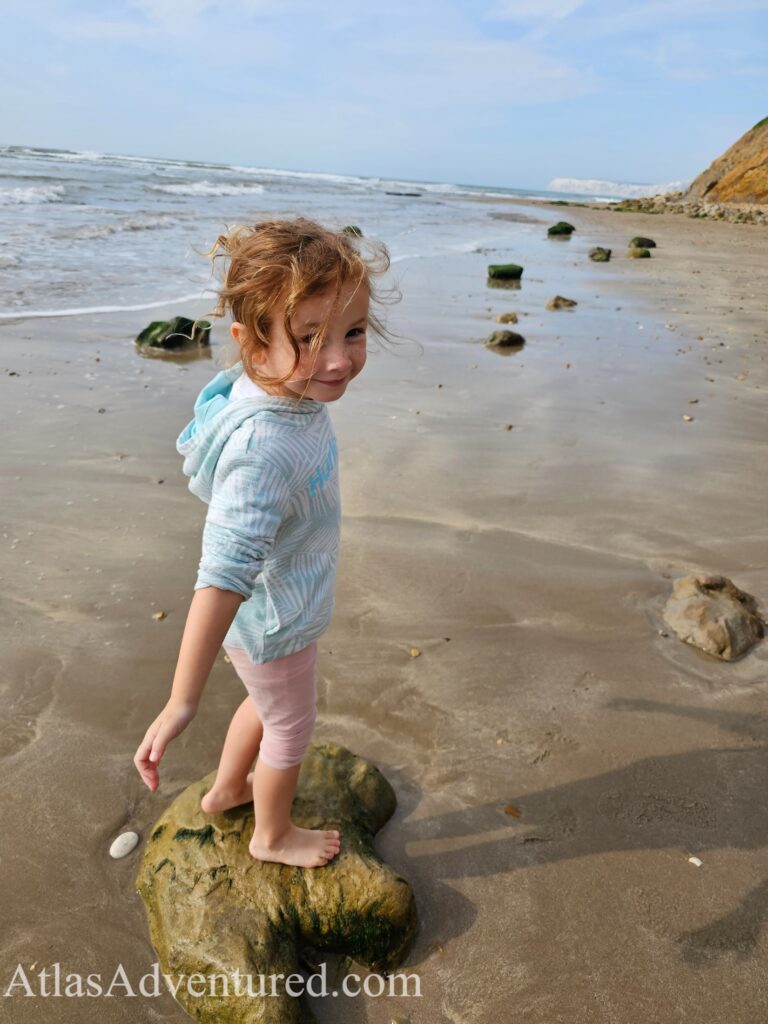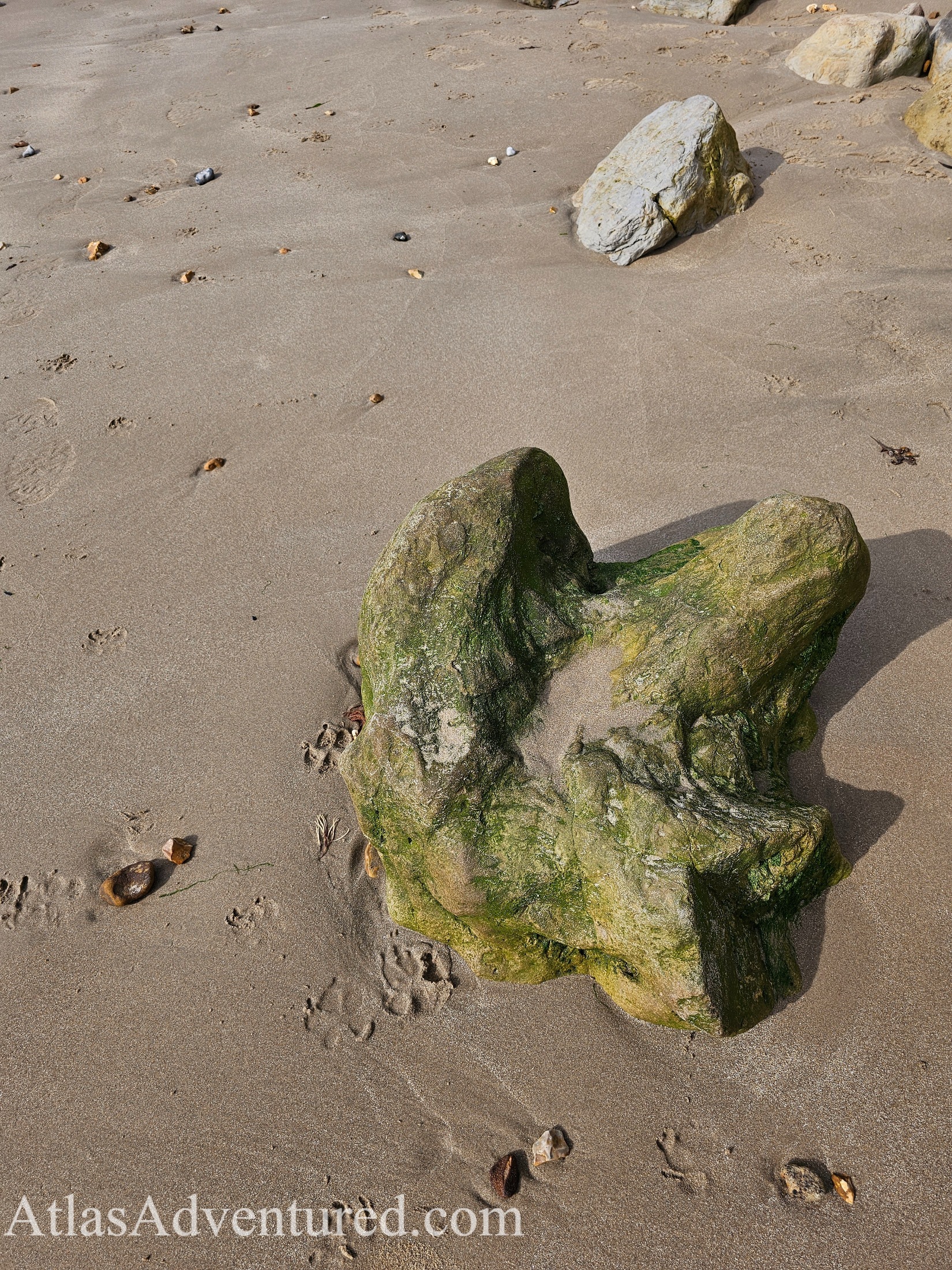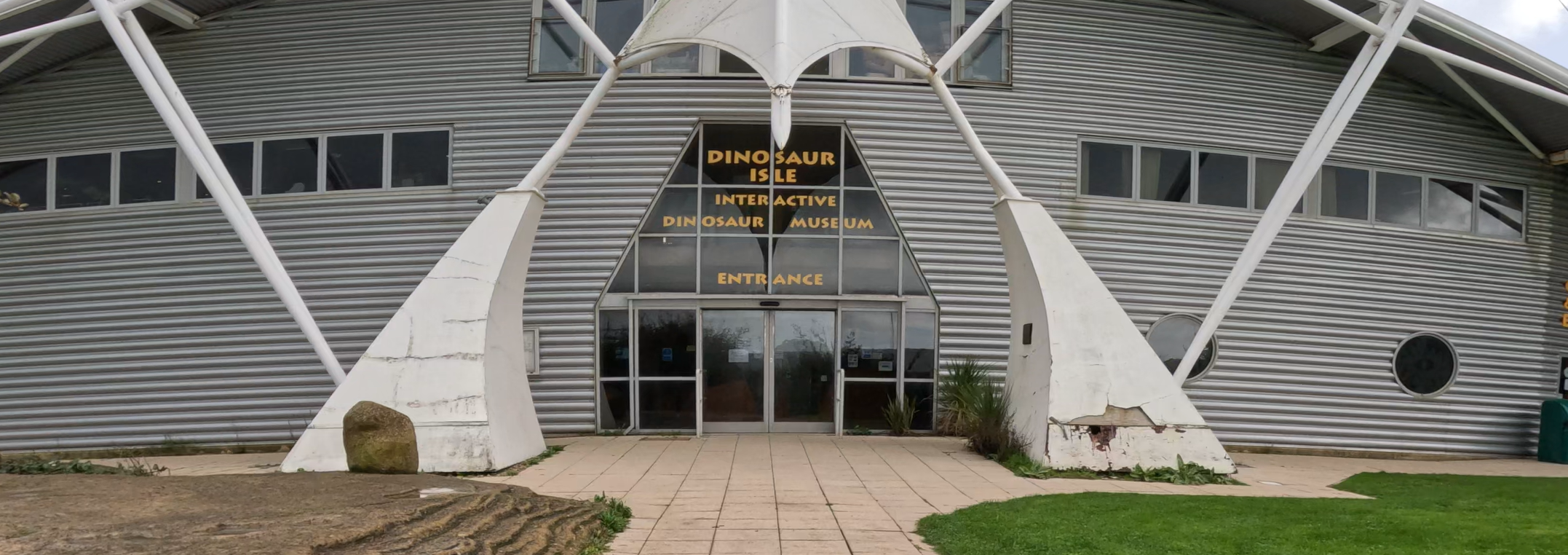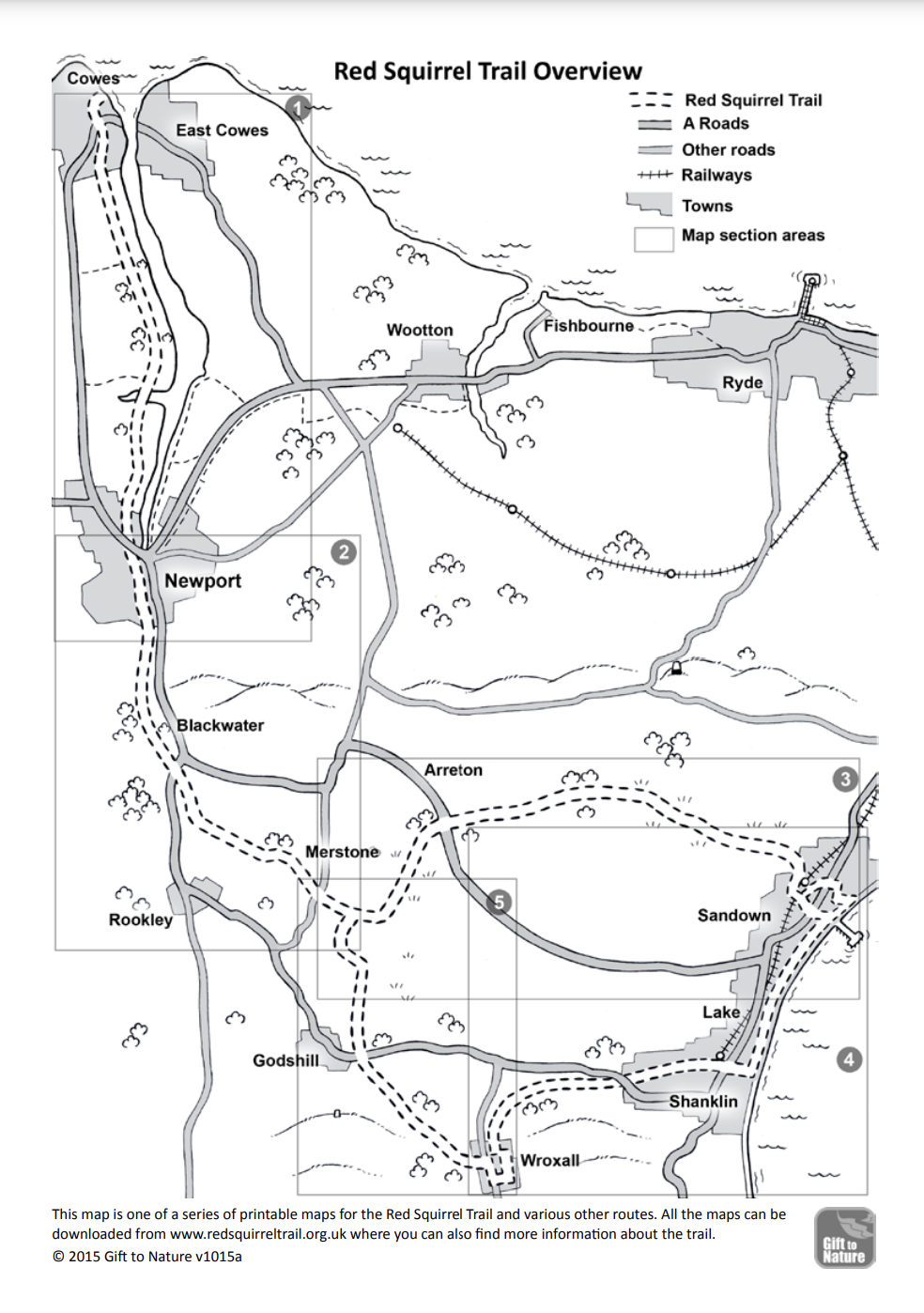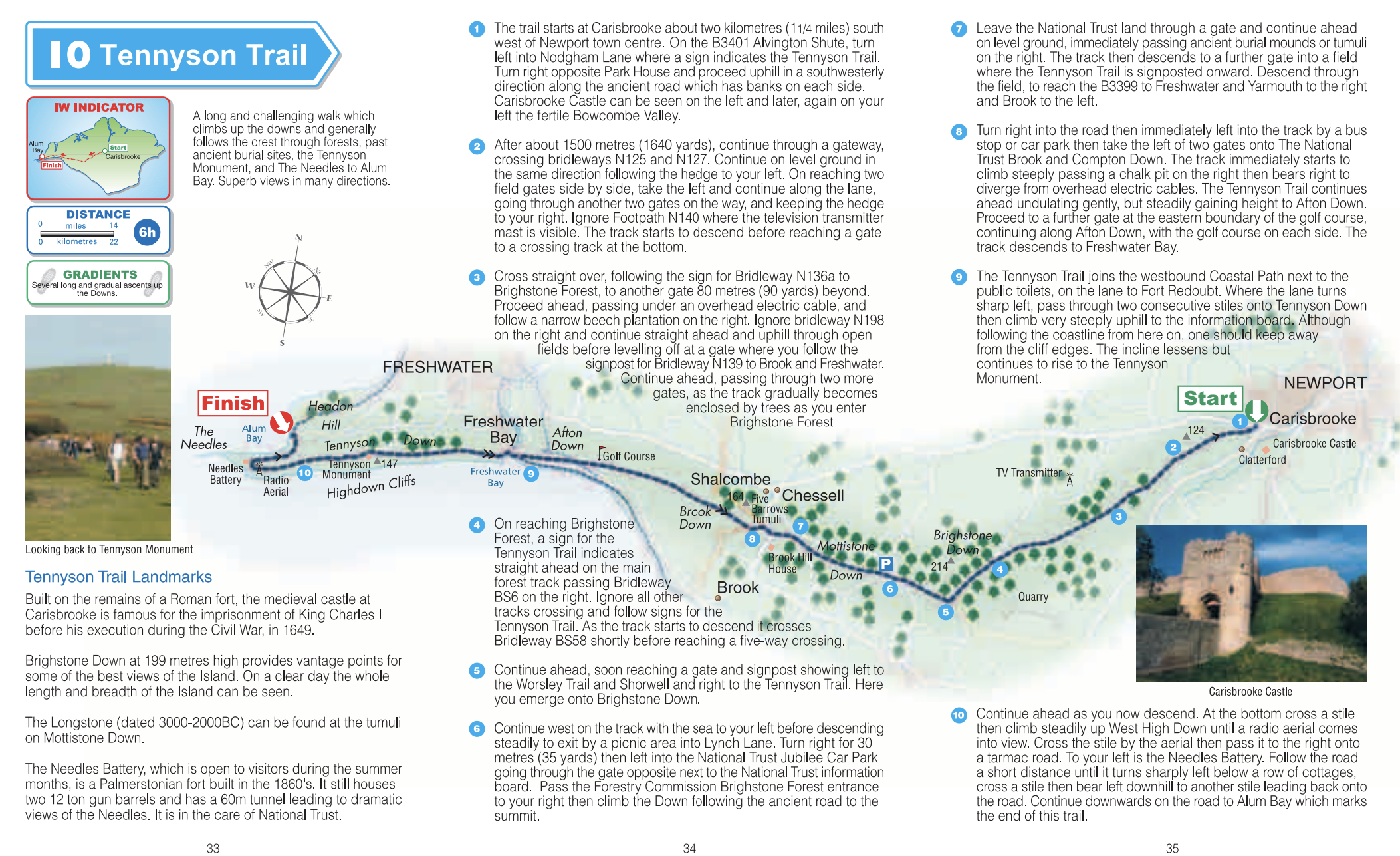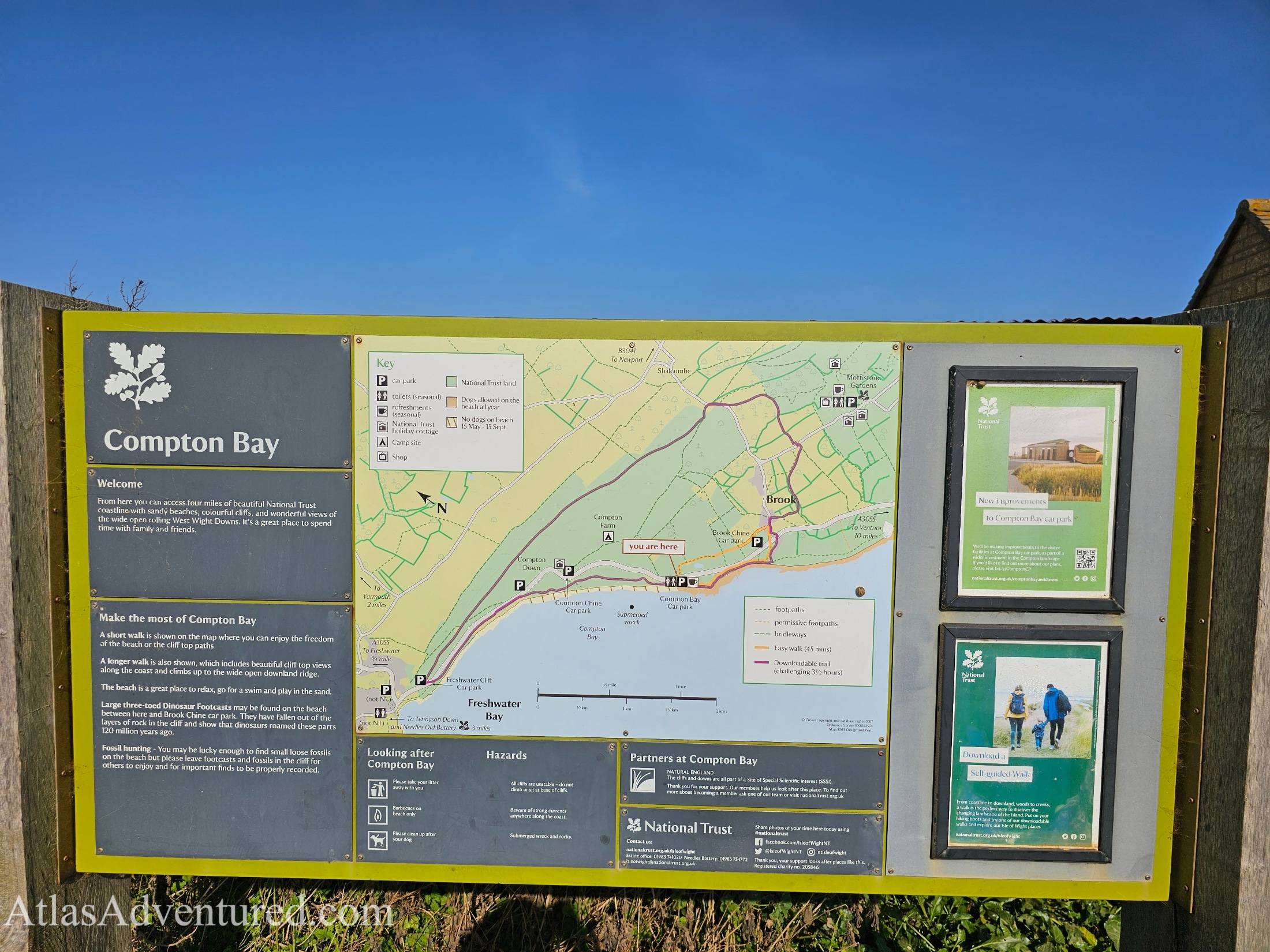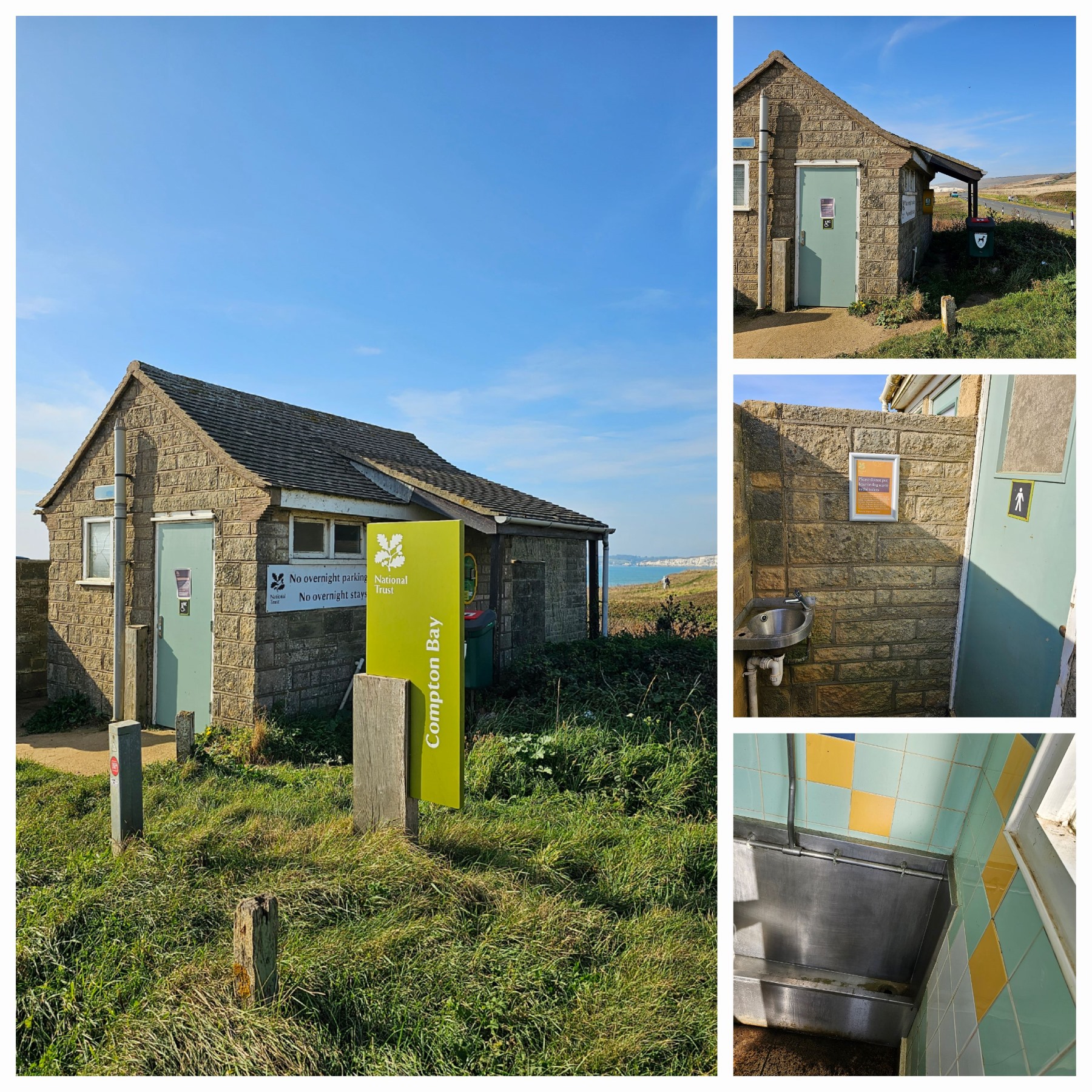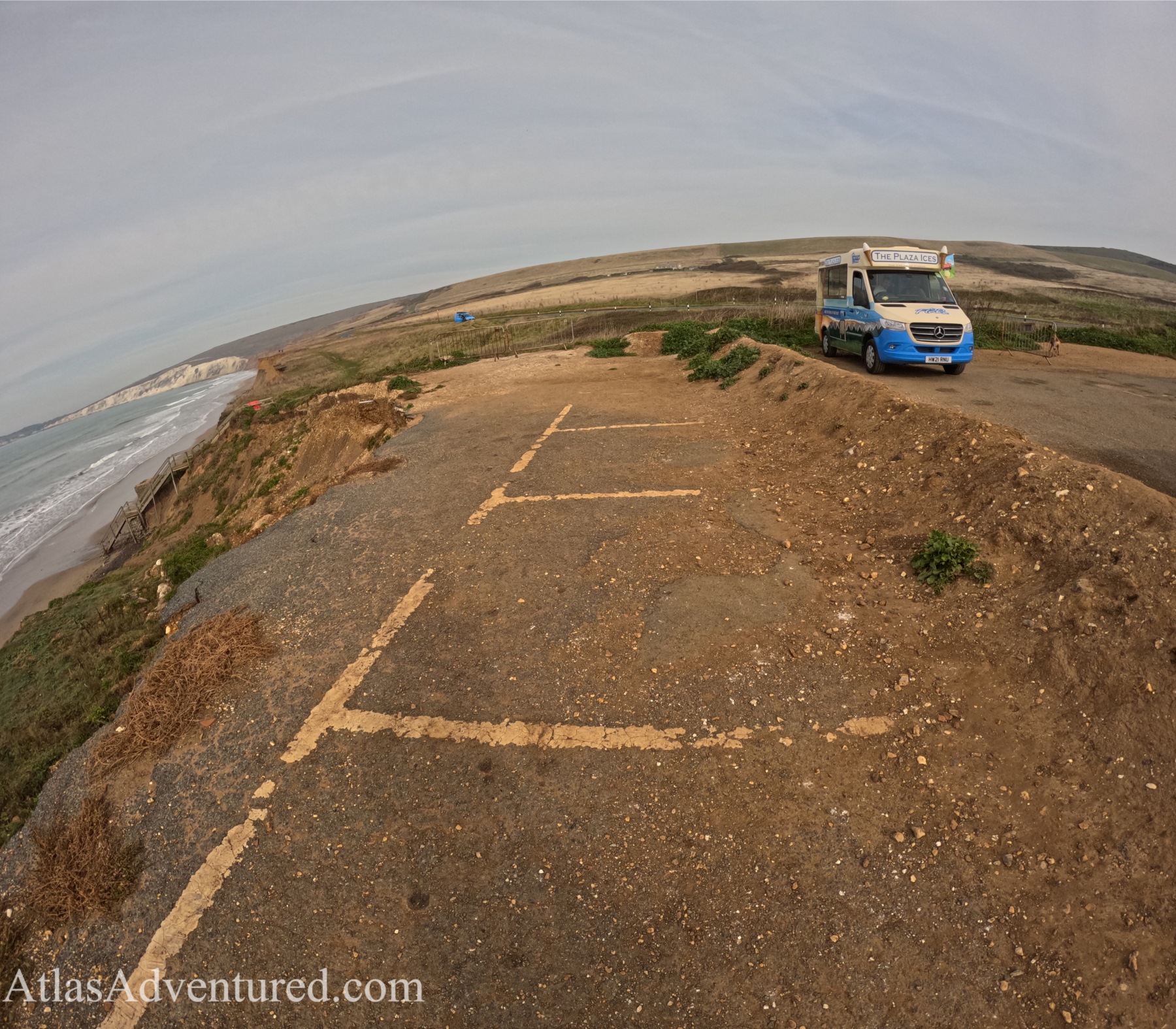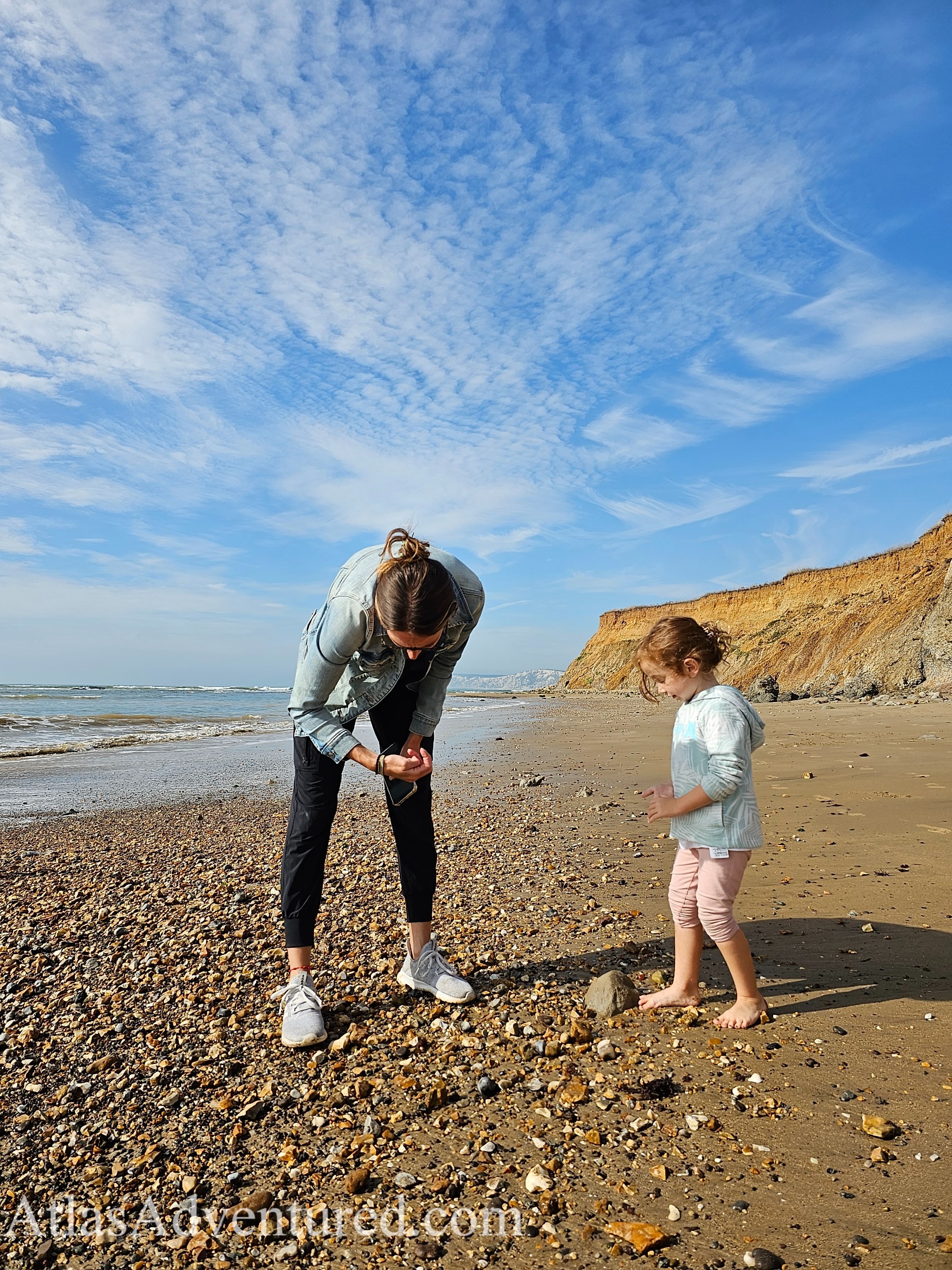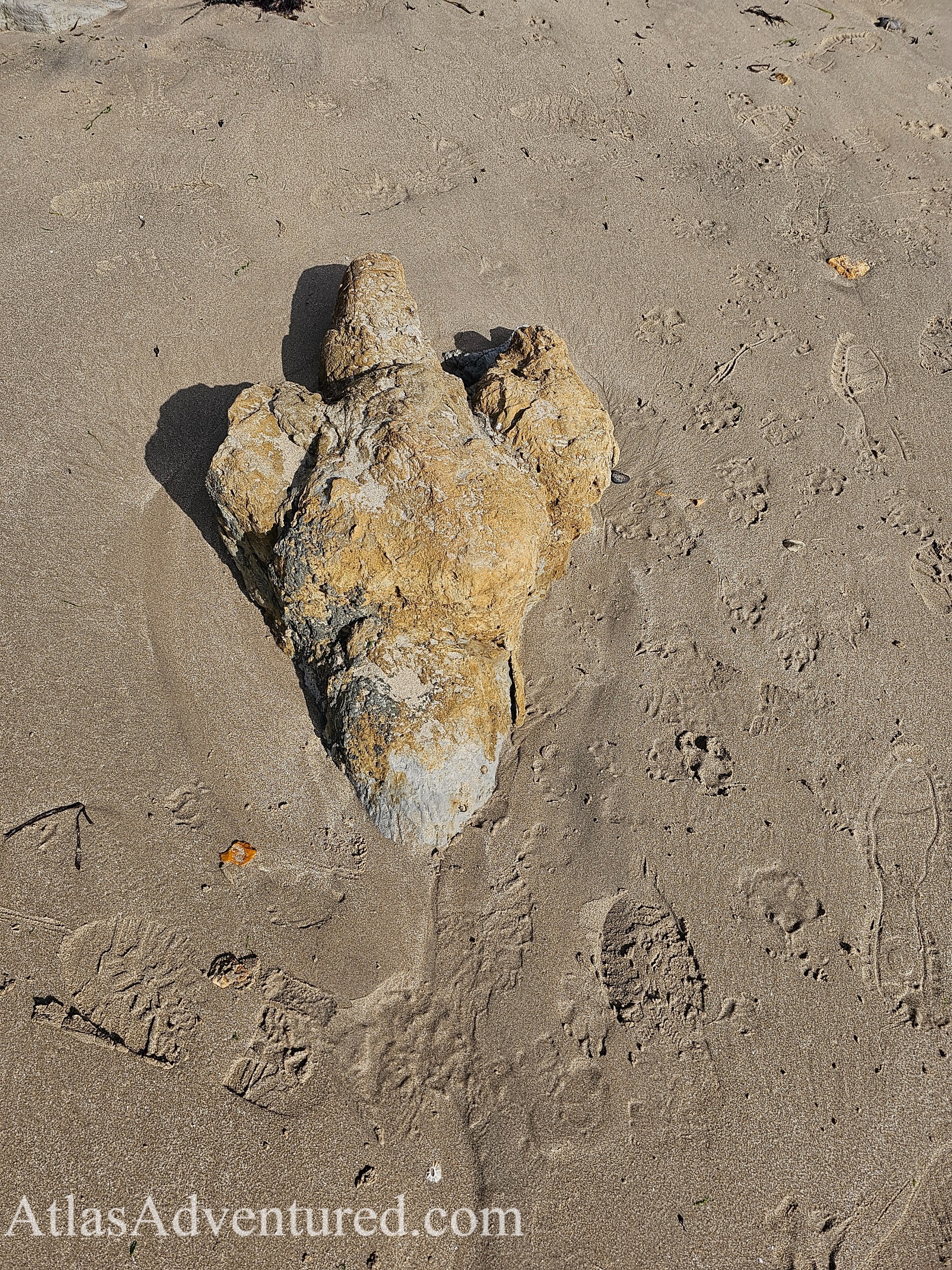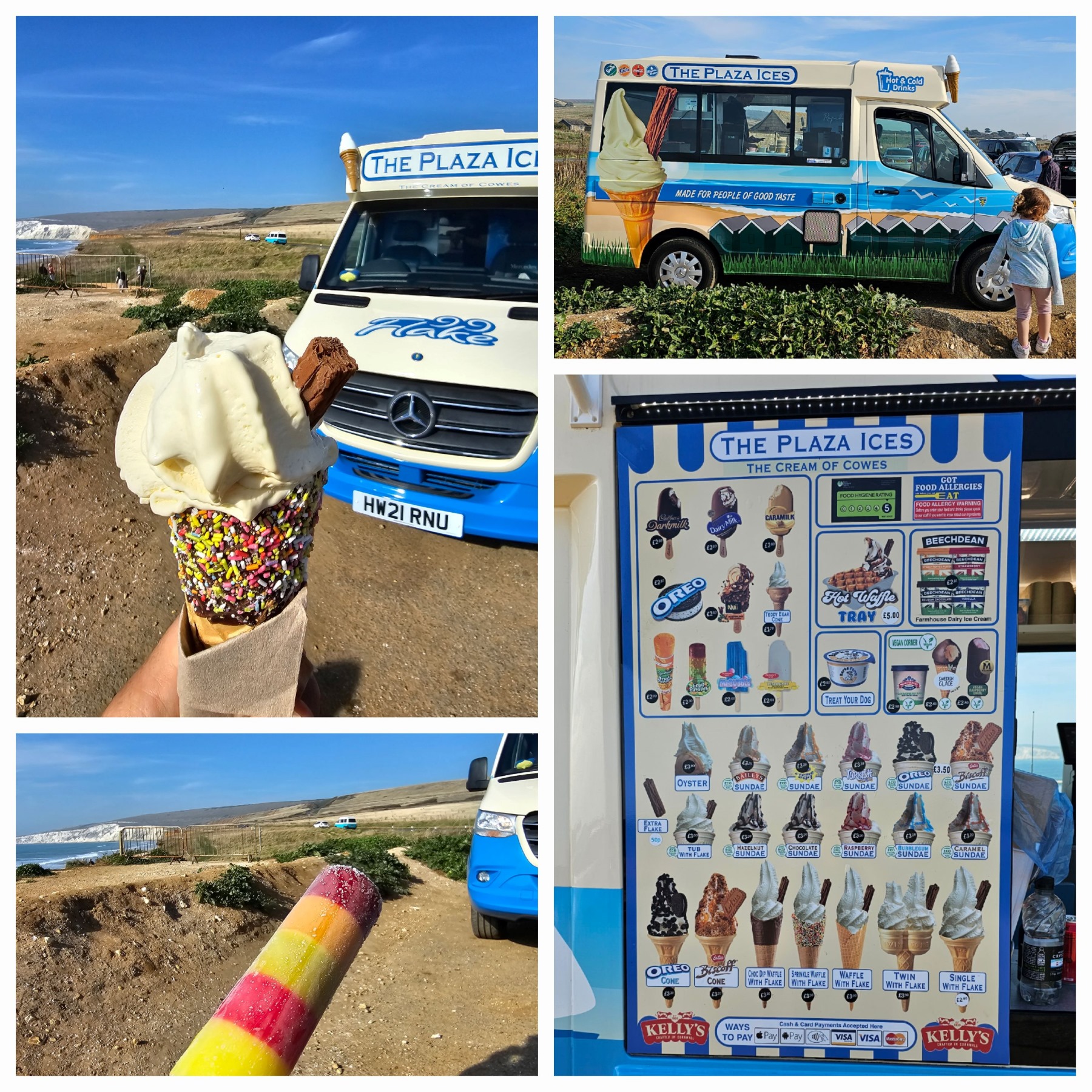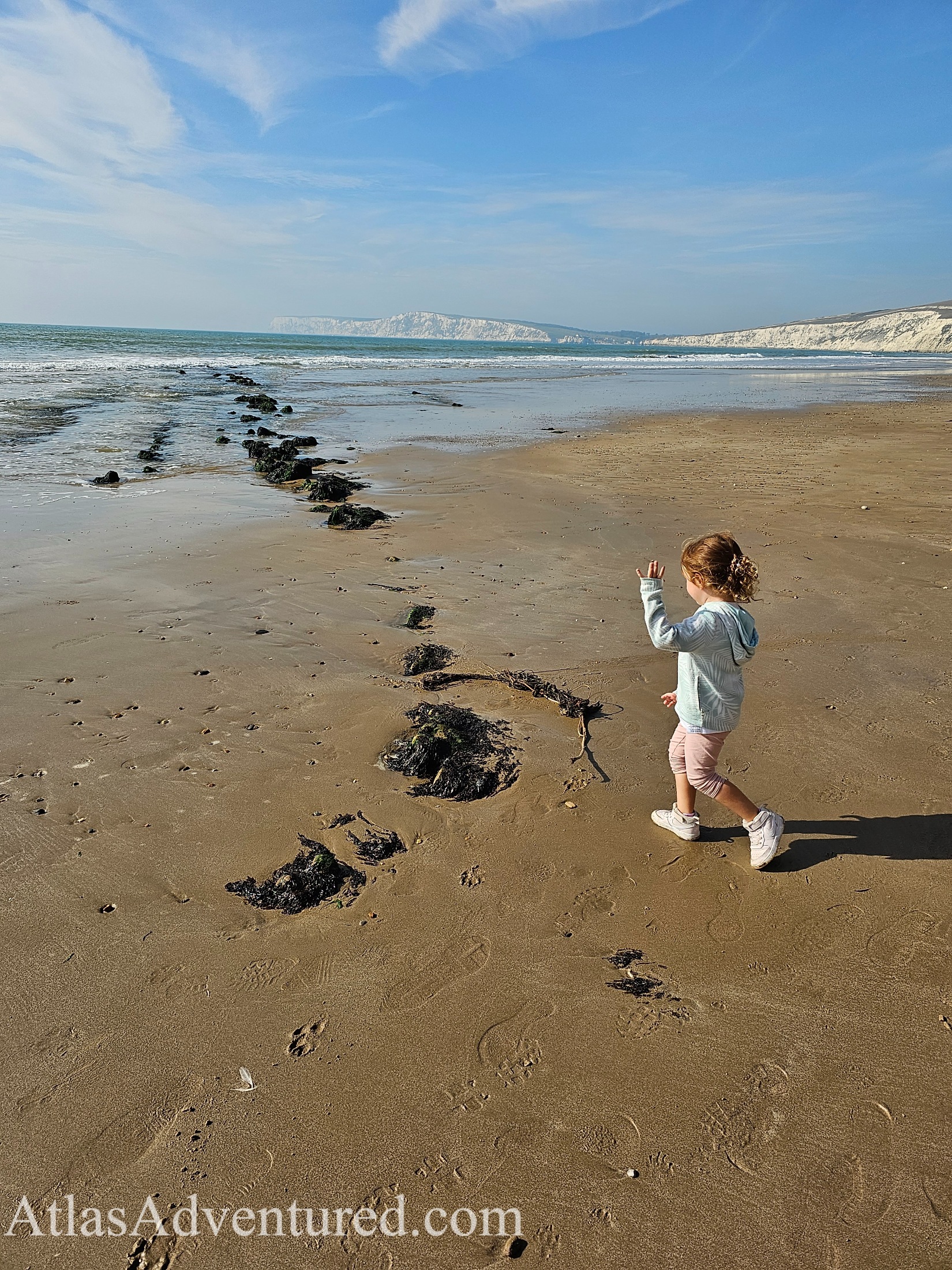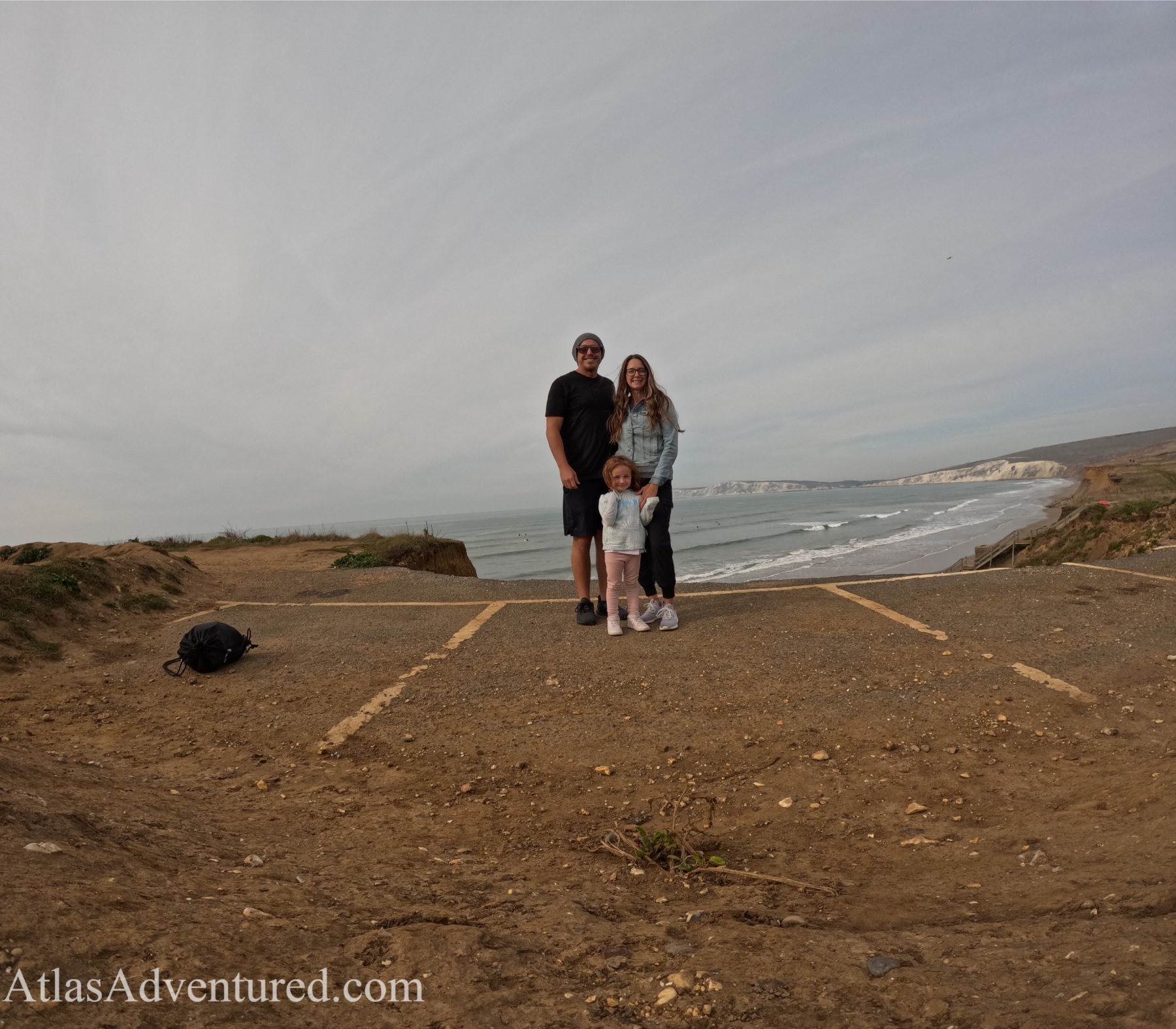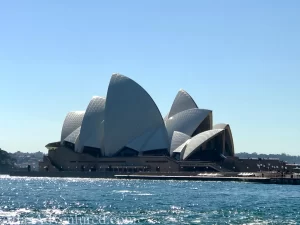Budget-Friendly Time Travel: Discovering Dinosaur Footprints on the IOW
Our family visited the Isle of Wight off the coast of England. Aka, Dinosaur Island.
We have always been huge fans of dinosaurs, so getting the chance to see actual footprint casts on the beach out in the open, not in a museum, but in nature, is truly a magical experience. I was not prepared for the emotional reaction I had to seeing them. Being able to put your own foot on top to really get insight to their size was so surreal. After that, being able to search for your own fossils was just a great experience. It taught our daughter so much, and I’m pretty sure you will be looking into becoming paleontologists after this trip.
If you ever find yourself on the Isle of Wight, are interested in dinosaurs, and want to see fossils up close and personal, or even want to find your own fossils, I’ve compiled all of the information you’ll need to plan your trip.
For an exciting and unique journey to the Isle of Wight, learn about our hovercraft adventure.
Let me know if you make it in the comments below! And what you find!
Dinosaur Island
The Isle of Wight is nicknamed Dinosaur Island because it is one of the most important places in the UK for finding dinosaur fossils. The island has a rich history of palaeontological discoveries, dating back to the early 1800s, long before the word “dinosaur” even existed!
More than 20 types of Early Cretaceous dinosaurs have been found on the island, some of which were first identified there, such as Neovenator, Eotyrannus, and Polacanthus.
The Compton Bay area of the Isle of Wight is renowned for its prehistoric footprints, particularly those of the Iguanodon, which are easily identifiable by their largest three-toed shape. These foot casts are usually between 30-60cm across. The best time to see them is at low tide.
Be sure to check the Met Office website for low tide times.
There is also a dinosaur museum located on the island, Dinosaur Isle, where you can see, hear, touch, and even smell the dinosaurs! You can even bring your findings into the museum and the experts there will tell you what you found. We ended up finding seashell fossils that were over 125 million years old!
Click here to see more about Dinosaur Isle!
To the Dinosaur Footprints!
The dinosaur footprint casts are located at Hanover Point, on Compton/Brook Bay. Compton Bay lies on the A3055 Military Road, which follows the coast between Freshwater Bay and Niton. The downs can also be accessed from the Military Road.
There are multiple ways to get there, which I will explain below.
Public Transport
If you are using public transportation, the closest bus stop is Compton Bay, which is served by the Southern Vectis bus service from Newport, route 12. This bus runs consistently during the summer but check current timetables during non-peak season. This will drop you off right outside the parking lot that contains the only public restroom in the area.
You can use the app Moovit or visit Island Bus Routes to check the bus timetables and directions. (All of the bus drivers are extremely friendly and will tell you if you’re getting on the right bus, or direct you to the correct one!).
While we were there, we took the bus from Sandown to Compton Bay. It took 2 different buses and about 2 hours. Each bus ride was about £5 per person, per bus. The buses are double decker, so we found ourselves a spot up top, right in the front, and it was a beautiful drive.
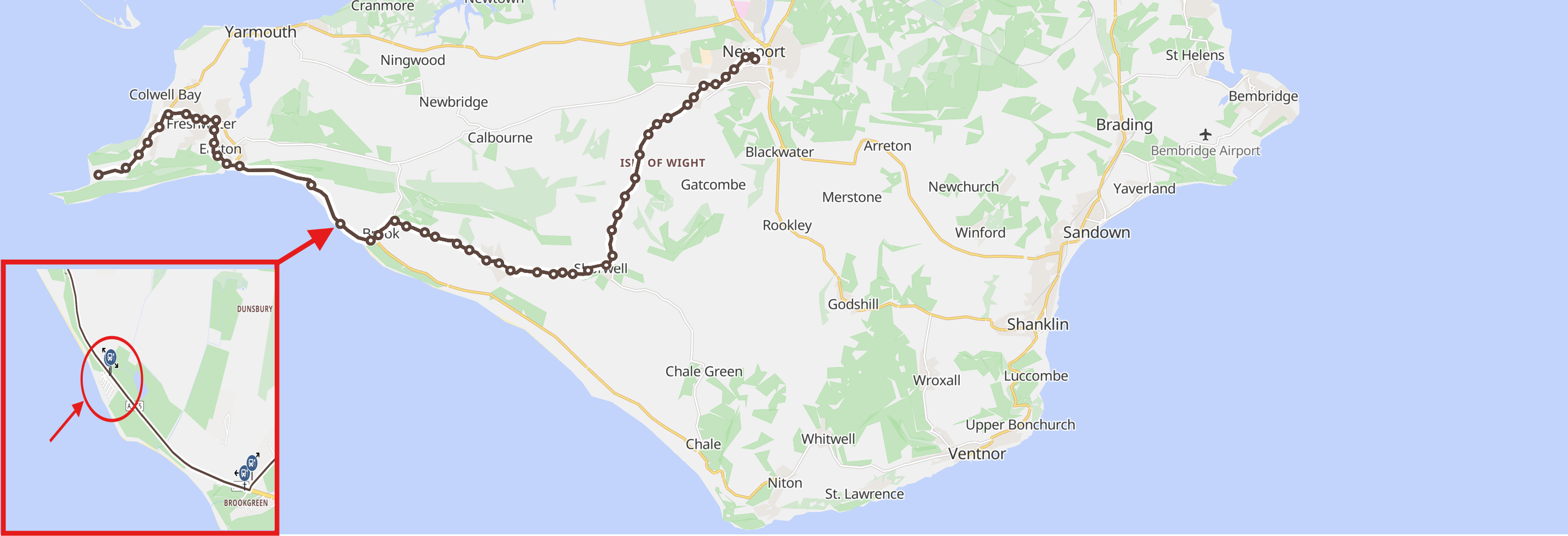
Biking, Cycling, Walking
If you are biking, make your way to Red Squirrel Trail. A 32 mile journey through the heart of Isle of Wight’s stunning countryside that includes a stretch along the coastline.
If you are cycling, the off-road Tennyson Trail is a classic Isle of Wight cycling experience. It crosses National Trust land over Afton Down, Compton Down, Brook Down, and Mottistone Down. It’s a chalk track along the ridge tops that promises breathtaking views and a hearty workout.
If you are walking, the Brook to Compton Walking Tour is a moderately challenging 3.7 mile loop trail that offers not just a hike, but a history lesson too.
Compton Down Circular is for those who fancy a bit more of a challenge. This 6.7 mile loop trail is perfect for hiking, mountain biking, and running. It’s open year round and is beautiful to visit at any time.
For more things to do while visiting the Isle of Wight, click here!
Parking
There are three pay and display car parks at Brook, Hanover, and Compton Chine.
The National Trust parking lot (free for members, so don’t forget to bring your card!) located at Compton Bay for £2 per hour, or at Brook Bay are the same price. There are machines in the lot to pay for parking, or you can pay by phone. The dinosaur footprints are located pretty much in between these two lots, so either would be fine.
Once you get to the Compton Chine parking lot, there are public restrooms as soon as you enter. I believe they may be closed during the off season though. You are up high on the cliff which gives you the most amazing views.
Safety and Regulations
- Due to the potential instability of the cliffs near Compton Bay, visitors are cautioned against scaling them or lounging nearby to avoid the danger of rockslides.
- To optimize fossil discovery while ensuring personal safety, it is recommended to conduct searches during low tide periods, taking care to avoid being cut off by the rising waters.
- Caution is advised when navigating across damp surfaces, as the rocks may become treacherous.
- Preserving the natural footprints in the area is essential for communal appreciation, therefore, refrain from employing tools like hammers or engaging in excavation activities on the cliff faces.
Finding the Dinosaur Footprints
To your right (from the Compton Chine Parking Lot), you will see a set of wooden stairs.
Head down and go left!
You’ll walk for a little while and start wondering if they’re really there at all. We were pretty much the only people on the beach at the time, so we couldn’t really ask anyone if we were headed in the right direction.
We had to climb over a smaller rock wall and down a few rocks, when we noticed the first footprint. Just writing that and reliving it in my head still gives me all the feels!
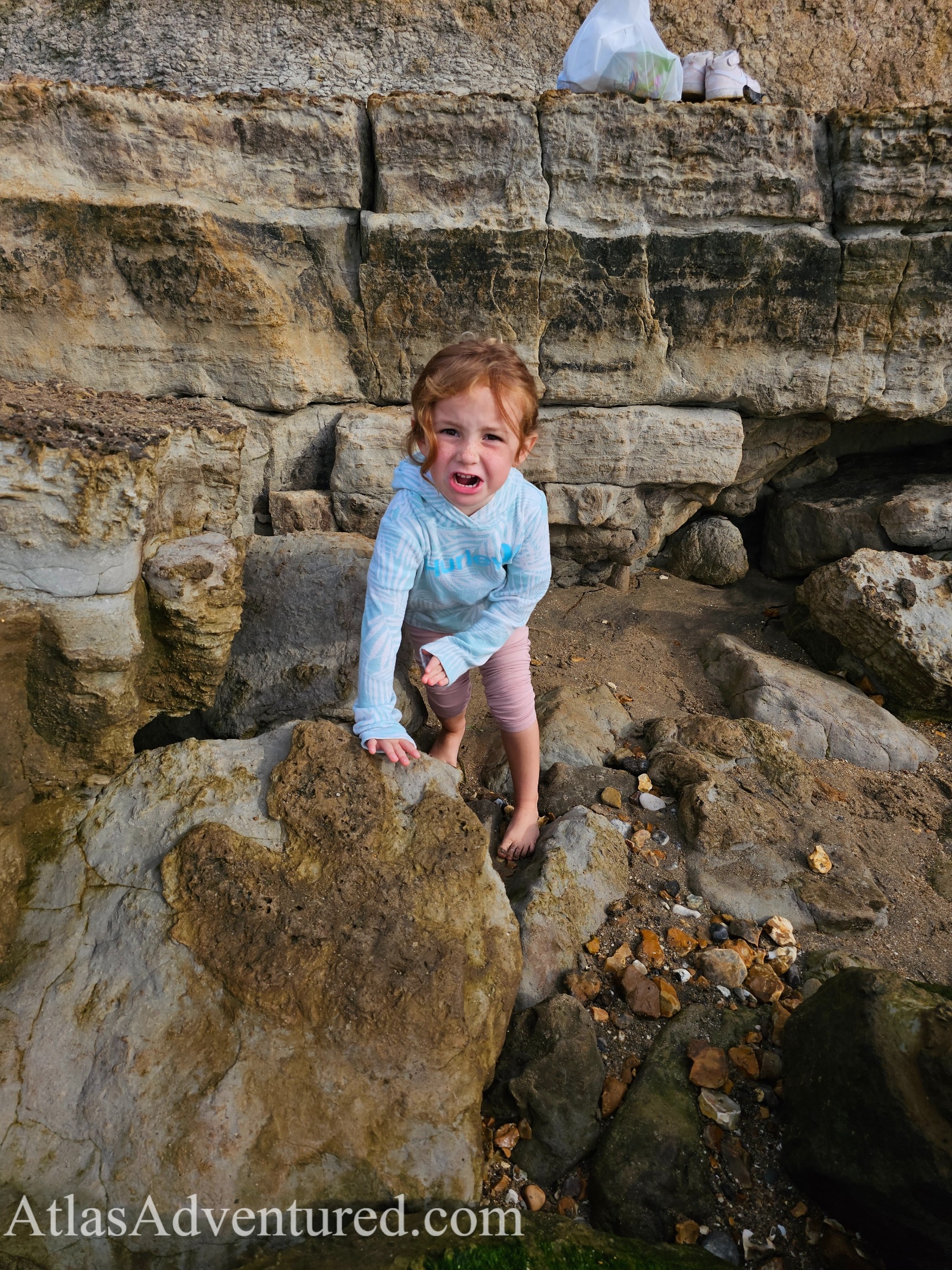
After that, continue heading down the beach for about 5 minutes. You’ll see big rocks in the sand and some may be covered in seaweed. Pay close attention to these rocks! They will start taking the shape of footprints! These are the footprint “casts”
What Is A Footprint Cast?
A cast is when an animal dies and its body decays, leaving an imprint in the sediment. The imprint then fills in with minerals from sediment and groundwater and hardens to form a “cast” fossil.
Once you find the first few, you will start seeing them everywhere! There are more than 300 dinosaur footprints on the beach!
*Please leave all of the fossils on the beach so everyone can enjoy them*
The National Trust does fossil walks, which you can book on their website. You can opt for a private or group tour. They will show you how to find your own fossils!
Congratulations! You found the Dinosaur Footprints!
After all of your dinosaur footprint findings, once you get back to the parking lot, there is an ice cream truck parked there during the summer! You can find them on Facebook to check out the times they will be there. They sell ice cream and hot drinks as well.
This was my first time having a “Whippy”, and let me tell you. It was one of the best soft serve ice creams I’ve ever had. It was so light and flavorful, and served with a chocolate flake. So good! I highly recommend grabbing a little something while you’re there.
Find your own Fossils
If you are interested in finding your own fossils, you have come to the right place!
There are two main beaches on the island where you can find fossils: Compton Bay and Yaverland.
Compton Bay is located on the south west coast of the island near Freshwater. It is a popular spot for finding dinosaur footprints, bones, and teeth, as well as marine fossils such as ammonites and shark teeth.
Yaverland is located on the east coast of the island near Sandown. It is another hotspot for finding dinosaur fossils, especially bones and teeth of herbivorous dinosaurs such as iguanodons and hypsilophodons.
When you go fossil hunting, you should follow some basic rules to ensure your safety and respect the fossils.
-Always wear appropriate clothing and footwear.
-Bring a bag, to either collect fossils, or to pick up trash.
-Never dig into the cliffs or damage the rocks, as they are protected by the National Trust and the law.
-Only collect loose fossils that you find on the beach or in the rocks.
-Check the weather and the tide times before you go.
-Avoid going alone or in bad conditions.
-You should always leave the fossils where you found them, unless you have permission to take them.
-You can report your finds to the Dinosaur Isle Museum or the Dinosaur Expeditions Centre, as they may be of scientific interest.
I hope this helped you plan a visit to the Isle of Wight, and find some real dinosaur footprints!
Enjoy your trip to the land before time and share your experiences in the comments below!

